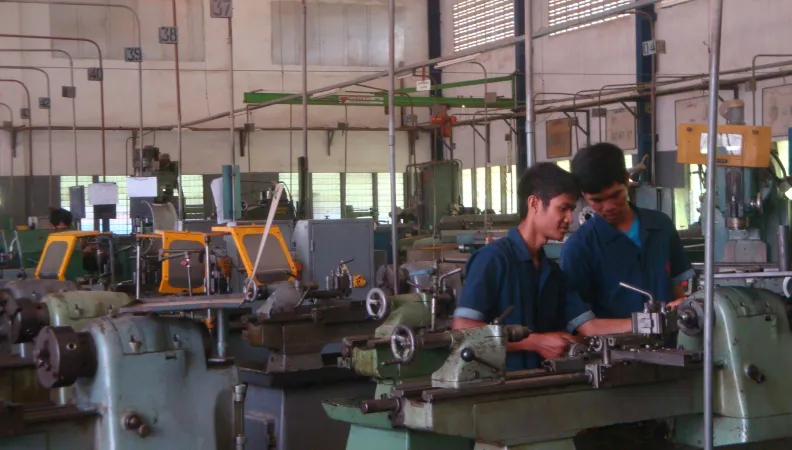Share the page
A project to support vocational training
Project


-
Project start date
-
Status
Completed
-
Project end date
-
-
Project duration
-
4 ans
-
AFD financing amount
-
€ 13200000
-
Country and region
-
Location
-
Phnom Penh
-
Type of financing
-
Beneficiaries
-
Ministry of Labour and Vocational Training
This project is for five years (2016–2021) and is co-financed by the Asian Development Bank (ADB). The aim is to improve access to vocational training, as well as to ensure high quality and relevance to the needs of businesses.
Context
Cambodia’s growth is one of the most robust in the region. However, this economic dynamism comes up against a number of structural weaknesses, particularly relating to a lack of qualifications among the workforce, forcing employers to recruit managers from neighbouring countries. This situation increases wage costs and hampers Cambodian employees from rising to better-paid positions. The recent project follows a first phase funded by ADB, which has had a notable effect on the development of skills standards and increased the competences of employees in provincial centres.
Description
This project aims to better meet the training needs of the labour market, in four priority sectors: construction, mechanics, electricity and manufacturing production.
It is organised around three complementary components:
- Promoting access to vocational training through a scholarship system, gateways, skills certification and an efficient social marketing strategy. The goal is to promote training programmes, especially for women;
- Improving the quality of vocational training and involvement of the private sector;
- Strengthening the governance and management of the vocational training system.
Impacts
This project will allow:
- Development of a skilled workforce, with macroeconomic effects on labour productivity and growth;
- Productive sectors to be more competitive in comparison with other ASEAN countries;
- Development of public-private dialogue to create a better match between the training offers and the labour market’s needs;
- Equal access to training and employment, especially for women.


